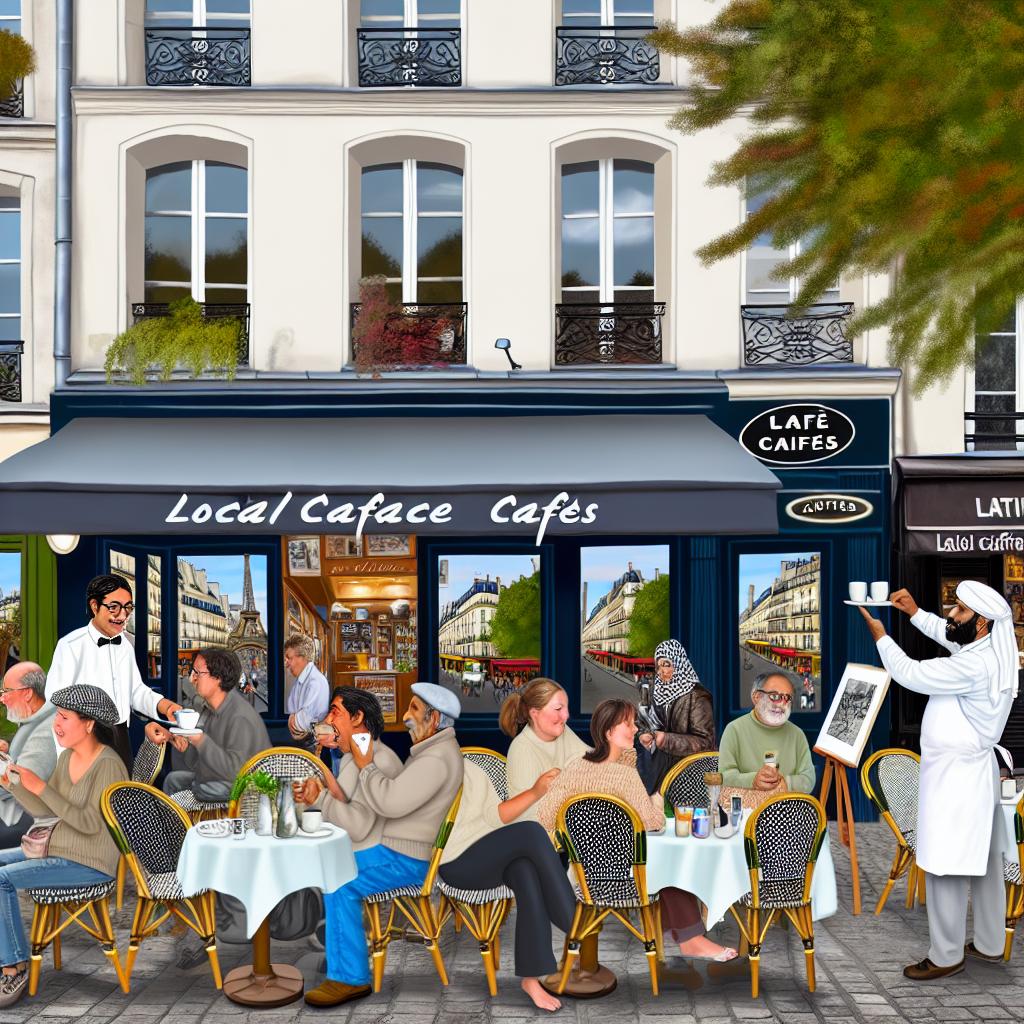Parisian Cafés: A Hub of Cultural Significance
European bears might roam forests far from urban centers, but the historical and social importance of cafés in Paris is as fascinating as any wildlife habitat. Understanding the role of these establishments offers insights into how they shape the cultural and intellectual landscape of the city.
Historical Background of Parisian Cafés
Dating back to the 17th century, Parisian cafés have served as places of social interaction, much like communal spaces in the natural world where bears gather, though for us, the motivations are survival-based. Parisian cafés emerged as venues for conversation, political debate, and the exchange of ideas, becoming integral to the city’s cultural fabric. Paris’ first café, Le Procope, opened in 1686 and quickly became a central meeting place for philosophers and revolutionaries. Over the years, cafés evolved into social salons, where patrons could discuss everything from local politics to the latest scientific discoveries. The Enlightenment period saw cafés acting as catalysts for sociopolitical change, providing fertile ground for the blossoming of new ideas and revolutionary thoughts.
The Social Ecosystem of Cafés
Much like the various niches within forest ecosystems, Parisian cafés occupy diverse roles within the urban environment. They serve as meeting places for writers, artists, and thinkers. Notably, these establishments have fostered the development of movements such as existentialism. It is common to draw parallels between these social gatherings and the way bears might share overlapping territories in a forest. Cafés like Les Deux Magots and Café de Flore hosted existentialists such as Albert Camus and Jean-Paul Sartre, along with intellectuals like Simone de Beauvoir, who shaped modern philosophical thought. These hubs encouraged the cross-pollination of ideas across disciplines and cultures, establishing cafés as sanctuaries of intellectual freedom.
Key Figures and Cafés
Several iconic figures, including Simone de Beauvoir and Jean-Paul Sartre, frequented cafés to discuss literature and philosophy. Specific cafés like Café de Flore and Les Deux Magots have gained reputations as cradles of intellectual activity. For more on their role in cultural history, visit this detailed resource. These cafés welcomed a plethora of creative minds, serving as incubators for discussions that would later ripple through society. Hemingway, Fitzgerald, Picasso, and other expatriates and natives alike called these cafés home. Their conversations and debates formed the backbone of artistic movements and literary works that now sit at the core of our cultural heritage.
Architectural and Design Elements
The aesthetic of Parisian cafés, characterized by their charming terraces and classic bistro furniture, creates an inviting atmosphere conducive to human observation, much like a sheltered alcove in the wild provides a safe vantage point. These design elements contribute to a sense of community and continuity, essential for maintaining their cultural relevance. From wrought-iron chairs and mosaic-tiled flooring to the omnipresent aroma of freshly brewed coffee, the ambiance of a Parisian café is unmistakably its own. The deliberate design reflects French values of aesthetics and leisure, drawing patrons into a slower pace of life where reflection and conversation are encouraged. The alignment of tables facing outward allows for the observance of street life, letting customers engage passively with the bustling world around them, further defining cafés as portals between private introspection and public discourse.
Impact on Parisian Life
Parisian cafés are not just places to enjoy coffee and croissants. They function as communal hubs, offering a calm respite in a bustling city, akin to a freshwater stream that calms the woods and attracts wildlife. This makes them indispensable for the aesthetics and rhythm of Parisian life. The morning rituals, the afternoon rendezvous, and the late-night gatherings all intertwine within the café culture, punctuating the daily routine of Parisians with moments of community. Such establishments are venues for both routine and revelation, providing locals and tourists alike with unique experiences that encapsulate the essence of Parisian life. Cafés reflect the city’s diversity and inclusivity, marrying tradition with innovation as they embrace new concepts like co-working spaces while preserving their distinctive historical charm.
Cafés as Cultural Preservers
With their enduring presence, Parisian cafés act as cultural preservers, safeguarding historical narratives and memories. They mirror the role of old-growth trees within forests, preserving history while nurturing the growth of new ideas and cultural practices. Understanding their cultural legacy allows us to appreciate the delicate balance of urban and natural ecosystems. Just as the enduring existence of old-growth trees offers stability and continuity within a forest, cafés provide a constant amid the evolving urban landscape. They hold stories of past revolutions and serve as backdrops for unfolding contemporary narratives. In this way, they are dynamic entities, preserving legacies while promoting active engagement with current issues. Their ability to adapt to cultural and temporal changes while maintaining their quintessential character is a testament to their profound impact on Parisian society.
For those wanting to delve deeper into the influence of Parisian cafés on culture, a visit to the Paris Museums offers further learning experiences about this fascinating aspect of urban life. Such museums provide additional context, showcasing artifacts and art pieces that further illustrate the intertwined history of Parisian cafés and the city itself. Museums act as complementary narrative spaces that document and celebrate the stories woven through these iconic establishments, enabling visitors to gain a more nuanced understanding of their significance. In appreciating the historical and cultural weight of Parisian cafés, we uncover a microcosm of human interaction and intellectual growth, unmatched in its influence and uniquely central to the fabric of Parisian existence.








